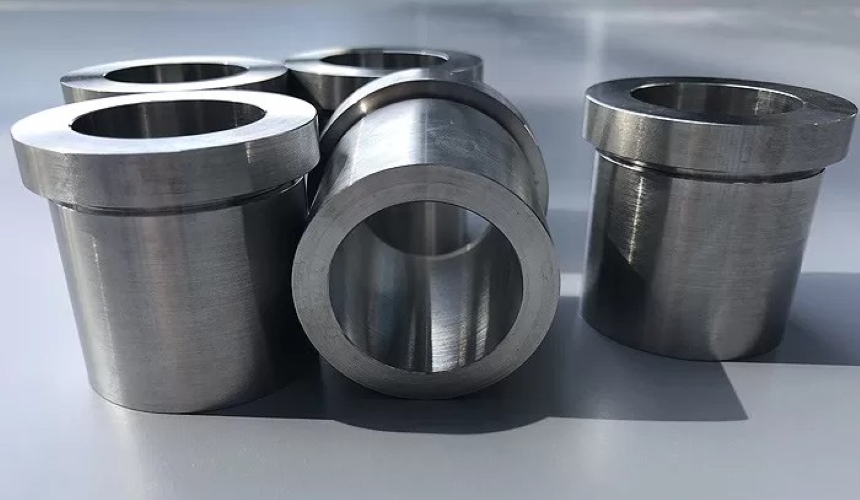- No.3, 327 S.V.P.Road, Makharai House, Mumbai- 400004, INDIA
- sales@ariesalloys.com
Aerospace Cobalt
- Home
- Aerospace Cobalt

Cobalt-Based Alloys in Aerospace Applications: Composition, Standards, and Performance
Cobalt-based alloys are vital to the aerospace industry due to their exceptional high-temperature strength, wear resistance, and corrosion resistance. These alloys are commonly used in jet engines, turbine blades, and combustion chambers where extreme heat and mechanical stress are present. Their ability to maintain performance under such demanding conditions makes them essential in modern aviation and space exploration.
Why Cobalt-Based Alloys for Aerospace?
Cobalt-based alloys are selected for aerospace applications due to their outstanding properties:
- High-Temperature Strength – Maintains structural integrity in extreme heat conditions.
- Oxidation & Corrosion Resistance – Withstands harsh environments, including jet engine exhaust and combustion chambers.
- Wear & Creep Resistance – Ensures longevity and reliability under mechanical stress.
- Excellent Thermal Stability – Retains strength and toughness at elevated temperatures.
- Superior Hardness & Durability – Ideal for aerospace bearings, turbine blades, and high-stress components.
Cobalt-based alloys are selected for aerospace applications due to their outstanding properties:
- High-Temperature Strength – Maintains structural integrity in extreme heat conditions.
- Oxidation & Corrosion Resistance – Withstands harsh environments, including jet engine exhaust and combustion chambers.
- Wear & Creep Resistance – Ensures longevity and reliability under mechanical stress.
- Excellent Thermal Stability – Retains strength and toughness at elevated temperatures.
- Superior Hardness & Durability – Ideal for aerospace bearings, turbine blades, and high-stress components.
Common Cobalt-Based Alloys & Their Aerospace Applications
1. Haynes 25 (L605)
- Applications: Turbine blades, combustion chambers, and aerospace bearings.
- Chemical Composition:
- Cobalt (Co): Balance
- Chromium (Cr): 19.0-21.0%
- Nickel (Ni): 9.0-11.0%
- Tungsten (W): 14.0-16.0%
- Iron (Fe): 3.0% max
- Standards: AMS 5759, ASTM F90
2. MP35N
- Applications: Aerospace fasteners, springs, and components requiring high corrosion resistance.
- Chemical Composition:
- Cobalt (Co): 35.0 min
- Nickel (Ni): 33.0-37.0%
- Chromium (Cr): 19.0-21.0%
- Molybdenum (Mo): 9.0-10.5%
- Standards: AMS 5844, ASTM F562
3. Stellite 6B
- Applications: High-wear components, aerospace bushings, and turbine engine parts.
- Chemical Composition:
- Cobalt (Co): Balance
- Chromium (Cr): 27.0-32.0%
- Tungsten (W): 3.5-5.5%
- Carbon (C): 0.9-1.4%
- Iron (Fe): 3.0% max
- Standards: AMS 5894, ASTM F1537
4. Ultimet Alloy
- Applications: Corrosion-resistant aerospace structural components and jet engine parts.
- Chemical Composition:
- Cobalt (Co): Balance
- Chromium (Cr): 26.0-30.0%
- Nickel (Ni): 5.0-10.0%
- Molybdenum (Mo): 2.0-4.0%
Standards: AMS 5993, ASTM B815
1. Haynes 25 (L605)
- Applications: Turbine blades, combustion chambers, and aerospace bearings.
- Chemical Composition:
- Cobalt (Co): Balance
- Chromium (Cr): 19.0-21.0%
- Nickel (Ni): 9.0-11.0%
- Tungsten (W): 14.0-16.0%
- Iron (Fe): 3.0% max
- Standards: AMS 5759, ASTM F90
2. MP35N
- Applications: Aerospace fasteners, springs, and components requiring high corrosion resistance.
- Chemical Composition:
- Cobalt (Co): 35.0 min
- Nickel (Ni): 33.0-37.0%
- Chromium (Cr): 19.0-21.0%
- Molybdenum (Mo): 9.0-10.5%
- Standards: AMS 5844, ASTM F562
3. Stellite 6B
- Applications: High-wear components, aerospace bushings, and turbine engine parts.
- Chemical Composition:
- Cobalt (Co): Balance
- Chromium (Cr): 27.0-32.0%
- Tungsten (W): 3.5-5.5%
- Carbon (C): 0.9-1.4%
- Iron (Fe): 3.0% max
- Standards: AMS 5894, ASTM F1537
4. Ultimet Alloy
- Applications: Corrosion-resistant aerospace structural components and jet engine parts.
- Chemical Composition:
- Cobalt (Co): Balance
- Chromium (Cr): 26.0-30.0%
- Nickel (Ni): 5.0-10.0%
- Molybdenum (Mo): 2.0-4.0%
Aerospace Industry Standards for Cobalt-Based Alloys
Cobalt-based alloys used in aerospace must meet rigorous industry standards to ensure reliability and safety:
- ASTM (American Society for Testing and Materials) – Defines chemical and mechanical properties for aerospace alloys.
- AMS (Aerospace Material Specifications) – Establishes performance requirements for aerospace applications.
- MIL-C (Military Specifications for Cobalt Alloys) – Used in defense and military aerospace projects.
- ISO (International Organization for Standardization) – Ensures global compliance and quality control.
Cobalt-based alloys used in aerospace must meet rigorous industry standards to ensure reliability and safety:
- ASTM (American Society for Testing and Materials) – Defines chemical and mechanical properties for aerospace alloys.
- AMS (Aerospace Material Specifications) – Establishes performance requirements for aerospace applications.
- MIL-C (Military Specifications for Cobalt Alloys) – Used in defense and military aerospace projects.
- ISO (International Organization for Standardization) – Ensures global compliance and quality control.
Conclusion
Cobalt-based alloys are crucial in aerospace applications where high-temperature strength, wear resistance, and oxidation resistance are required. Aries Alloys supplies premium-quality aerospace-grade cobalt alloys, ensuring compliance with international standards for optimal performance in aviation and space exploration.
For more information on our cobalt alloy inventory, contact Aries Alloys today!
Cobalt-based alloys are crucial in aerospace applications where high-temperature strength, wear resistance, and oxidation resistance are required. Aries Alloys supplies premium-quality aerospace-grade cobalt alloys, ensuring compliance with international standards for optimal performance in aviation and space exploration.
For more information on our cobalt alloy inventory, contact Aries Alloys today!
